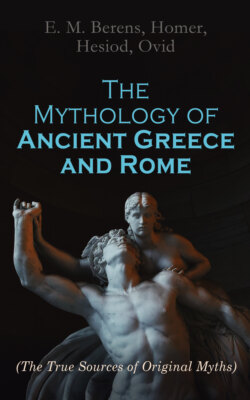Читать книгу The Mythology of Ancient Greece and Rome - Homer - Страница 69
На сайте Литреса книга снята с продажи.
EXPLANATION.
ОглавлениеIn the reign of Deucalion, king of Thessaly, the course of the river Peneus was stopped, probably by an earthquake. In the same year so great a quantity of rain fell, that all Thessaly was overflowed. Deucalion and some of his subjects fled to Mount Parnassus; where they remained until the waters abated. The children of those who were preserved are the stones of which the Poet here speaks. The Fable, probably, has for its foundation the double meaning of the word ‘Eben,’ or ‘Aben,’ which signifies either ‘a stone,’ or ‘a child.’ The Scholiast on Pindar tells us, too, that the word λάος, which means people, formerly also signified ‘a stone.’
The brutal and savage nature of the early races of men may also have added strength to the tradition that they derived their original from stones. After the inundation, Deucalion is said to have repaired to Athens, where he built a temple to Jupiter, and instituted sacrifices in his honor. Some suppose that Cranaus reigned at Athens when Deucalion retired thither; though Eusebius informs us it was under the reign of Cecrops. Deucalion was the son of Prometheus, and his wife Pyrrha was the daughter of his uncle, Epimetheus. After his death, he received the honor of a temple, and was worshipped as a Divinity.
